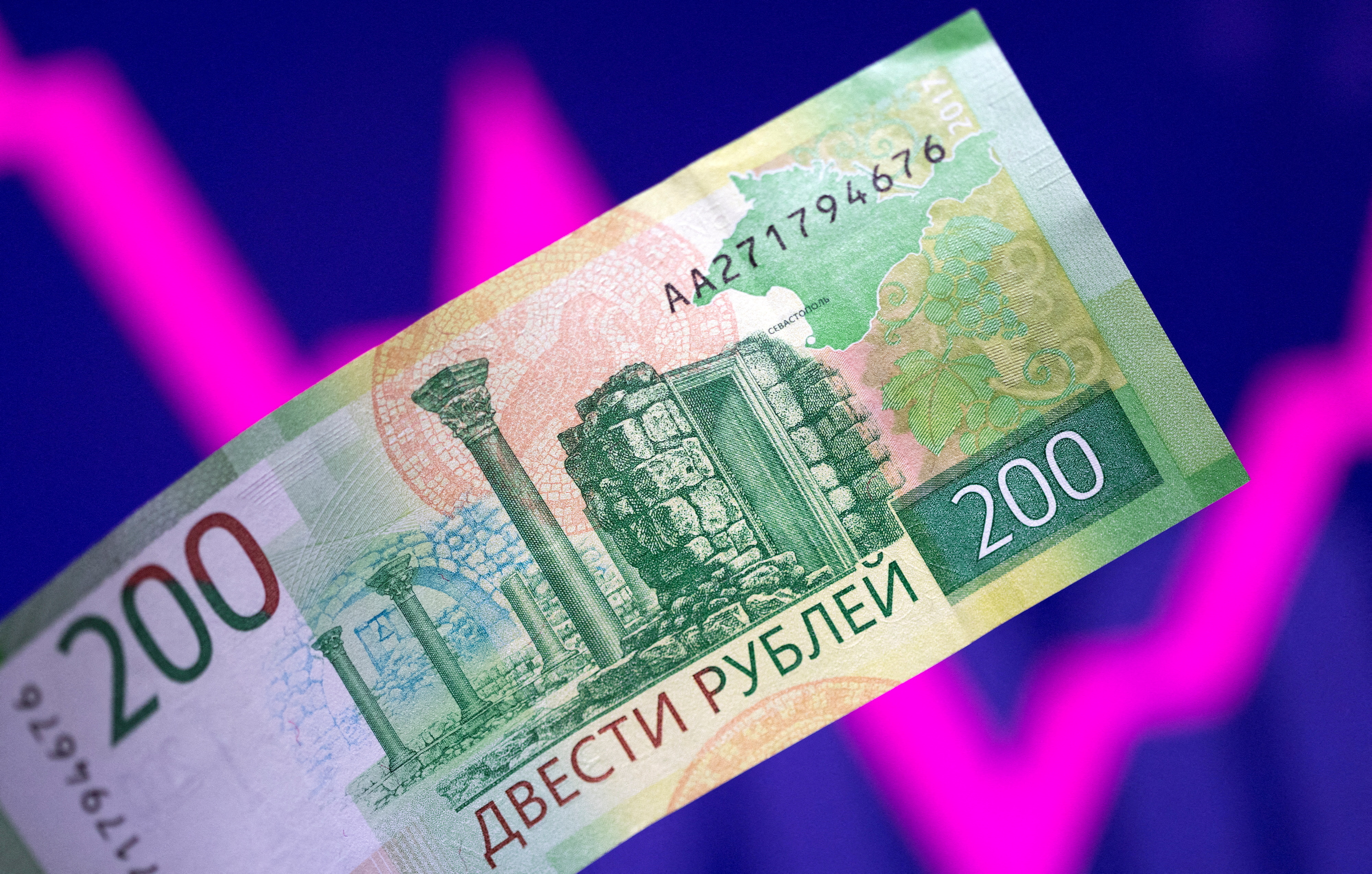THE RUSSIAN CRISIS
Paper prepared jointly by the secretariats of the United Nations Conference on Trade and
Development and the United Nations Economic Commission for Europe
A. Introduction
The underlying origins of the Russian crisis of 1998 are to be found in the country’s
economic structure, institutional environment and political processes. But the character of the
crisis has much in common with others in the series of recent financial crises in emerging markets.
Whilst the crisis must be seen in the context of policy failures and abortive reform efforts during
the 1990s,
its unfolding reflected mismanagement of the opening of the country’s financial
markets to foreign lenders and investors which left the country vulnerable to the risk that
domestic financial difficulties (such as those of the management of the market for government
debt instruments) could be transformed into a full-blown currency crisis. The crisis brings out
the interaction of weaknesses in external and internal economic policy which have resulted in the
hardships endured by the public at large during the Russian government’s efforts to transform
a centrally planned into a market economy.
B. The economic and institutional background
The process of economic transformation in Russia has been marked by a prolonged
transitional depression and macroeconomic instability: seven years of continuing decline resulted
in a cumulative drop of GDP by more than 40 per cent between 1989 and 1996; in that period
there were also several outbursts of near-hyperinflation.
The first radical effort to tackle inflation
was the IMF-supported stabilization programme of 1995. It focussed on tight monetary control
and nominal exchange rate targets; subsequently, direct central bank financing of the budget was
discontinued and the exchange rate was placed under control. In the years that followed Russia
made marked progress towards price and exchange rate stability (table 1) and this prompted
- 2 -
Table 1
RUSSIAN FEDERATION: SELECTED ECONOMIC INDICATORS, 1993-1998
(Average annual rates of change, per cent, unless otherwise indicated)
1993 1994 1995 1996 1997 Jan.-Jun.
1998 a
Gross domestic product -8.7 -12.7 -4.1 -3.5 0.8 -0.5
Gross industrial output -14.1 -20.9 -3.3 -4.0 1.9 0.1
Gross agricultural output -4.0 -12.0 -8.0 -5.0 0.1 0.6
Gross fixed capital formation b
-25.8 -26.0 -7.5 -18.5 -5.0 -6.0
Total employment -1.7 -3.3 -3.0 -0.7 -0.8 -0.9 c
Employment in industry -2.4 -10.7 -7.5 -4.7 -5.3 -3.9 c
Unemployment rate
(per cent of labour force, end period) 5.5 7.5 8.8 10.0 11.3 11.5
Consumer prices (annual average) 875.0 309.0 197.4 47.8 14.7 8.4
Consumer prices (year-on-year) d
844.2 214.8 131.4 21.8 11.0 6.5 e
Industrial producer prices (year-on-year) d
902.6 235.1 175.3 25.5 7.4 1.8 e
Average gross wages and salaries in the economy (real) 0.4 -8.0 -25.1 1.9 4.6 8.6
Dollar value of average gross wages and salaries .. 71.0 9.3 32.4 6.3 9.4
Money supply (M1) (per cent of GDP) .. 8.0 6.9 7.6 9.0 ..
Money supply (broad money) (per cent of GDP) .. 14.5 13.5 14.4 16.0 ..
Total credit to non-government sector (per cent of GDP) .. 13.7 10.9 10.0 10.6 ..
Average yield on short-term (3-month) treasury bills
(annual compound rate, per cent)
.. .. 168.0 85.8 26.0 39.2
Average short-term lending interest rate of commercial banks
(annual compound rate, per cent)
.. .. 319.5 146.8 46.2 43.9
Average interest rate of commercial banks on time (1-month) deposits
(annual compound rate, per cent)
.. .. 102.0 55.1 16.4 7.4
Share of loss-making enterprises in industry (average for the period, per cent) .. 21.9 25.7 36.4 45.1 47.0
Consolidated budget surplus (- deficit) (per cent of GDP)
Russian Ministry of Finance methodology f
-4.6 -10.7 -3.0 -4.2 -4.4 -4.8
Alternative estimates
Institute of Economic Analysis (Moscow) g
-15.8 -9.6 -5.9 -8.7 -7.7 ..
Russian Economic Trends h
.. .. -5.9 -8.9 -8.4 -5.9
OECD i
.. -10.1 -5.7 -8.8 .. ..
Current account surplus (- deficit) (per cent of GDP) 3.4 3.3 3.0 3.3 0.6 ..
Gross forex debt (end period, billion dollars) 112.8 121.6 120.5 125.0 130.8 ..
Official forex reserves (excluding gold)(end period, billion dollars) 5.8 4.0 14.4 11.3 13.0 10.9
Merchandise exports, total (billion dollars) 59.6 68.1 81.3 89.1 87.4 36.0
Merchandise imports, total (billion dollars) 44.3 50.5 60.9 62.3 67.6 33.6
Trade balance (million dollars) 15.3 17.6 20.4 26.8 19.8 2.4
Exchange rate (R/$, period average) 0.99 2.19 4.56 5.12 5.78 6.12
Source:
Secretariat of the United Nations Economic Commission for Europe. For sources of the alternative estimates of the fiscal deficit see notes.
a Preliminary.
b The data for 1997and1998 refer to total investment outlays.
c January-June 1998 over January-June 1997.
d December over December.
e June over June.
f As reported by Goskomstat. Deficit in 1994 includes additional forex credit operations and deferred central bank transfers.
g Institute for Economic Analysis, "Ekonomicheskoe razvitie Rossii v 1997 godu", Voprosy Ekonomiki (Moscow), No.3, 1998, pp. 141-142.
h Working Centre for Economic Reform/Russian European Centre for Economic Policy, Russian Economic Trends, Monthly Update
(Moscow), September 1998.
i OECD, Economic Surveys Russia 1997-1998.
- 3 -
positive expectations in the West and a widespread - but in the event deceptive - perception that
the country was pursuing the right course of reforms.
It is important to point out that the 1995 stabilization effort was not underpinned by deep
structural and institutional reforms. Russia inherited from the past an overindustrialized
economy, dominated by highly inefficient heavy industry (including the military-industrial
complex). The liberalization of prices and the discontinuation of subsidies resulted de facto in
the destruction of a large share of the existing capital stock. Restructuring these industries is a
daunting policy task: simply closing down the large number of non-viable or inefficient
enterprises would not be socially and politically tolerable, while their active restructuring would
require - if it is possible at all - new investment of a magnitude which, when compared with
Russia's absorptive capacity, was simply implausible even in the medium run.


